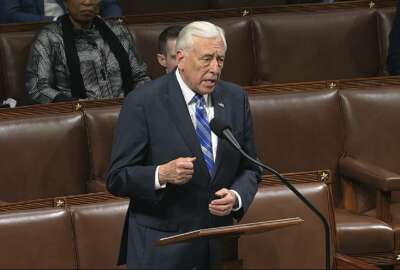
Inspectors general? They’re pussycats!
Career managers can turn inspectors general into allies, not enemies.
Mama said there’d be days like this.
Days like if you’re an inspector general, you wonder whether the seemingly random blowpipe vector of the Trump administration will fire your tuchus. One large-agency IG — an effective, articulate and, as far as I know, fair-minded individual — has started turning down routine interview requests.
I understand. This man was appointed by President Barack Obama. One high official at the agency, a Trump appointee, told me a while back, yeah, the IG maybe has tried to put the screws to the programs a little. But the Trump appointee said he wasn’t bothered by it. He just gives the IG all the information requested and sleeps just fine at night.
The good-government and the IG communities are in something of an uproar over the not-so-random dismissals of IGs: Steve Linick from State Department, Michael Atkinson from the intelligence community, Glenn Fine demoted at Defense after being yanked from leadership of the pandemic relief oversight job, and others.
I get that, too. Inspectors general occupy a weird statutory place. Either the president or the department head appoints them, but they’re supposed to act independently. There’s a history there. Brian Miller, now a White House lawyer, is President Donald Trump’s nominee for Special Inspector General for Pandemic Recovery. Miller was IG of the General Services Administration during the George W. Bush administration. He got into a spat with a Republican appointee running the agency. Miller was the one left standing.
Yes, the Trump administration is more, let’s say, sensitive to critique than perhaps its predecessors. But, like it or not, the president is within his rights in firing and otherwise shuffling around the IG cadre. I’m not saying it’s good, just that it’s legal and people have to live with it.
Now comes a bill its supporters, all Democrats at this point, believe would strengthen inspector general independence. It would give IGs seven-year terms. And, the bill states, the president could only remove an IG before expiration of the IG’s term “for permanent incapacity, inefficiency, neglect of duty, malfeasance, or conviction of a felony or conduct involving moral turpitude.” Whether this would be upheld constitutionally I can’t say, but I’d bet there would be a White House challenge on constitutional, separation of powers grounds.
Basically, there’s nothing anyone can really do, who might be annoyed or even horrified at the IG situation. Certainly career managers can only try to ignore the stomping, yelling. and dish hurling on the floor above.
But for long term success, an ideal best practice is accepting the idea of oversight, even if is comes from under the same roof that houses the programs. Corporate line-of-business and program managers have internal controllers and auditors to deal with. Corporations themselves hire outside auditors. Even thought the companies pay the auditors, the system mostly works because the auditors and the companies both have their reputations to worry about. And because most people want to act legally and responsibly.
I spoke with a retired career program manager the other day. He ran a visible, national, big-dollar federal program for more than a decade, one that carried potential for major fraud or mismanagement. Yet the IG never uncovered a material weakness.
This program manager had a multi pronged strategy, stemming from a philosophy of integrity and the desire to be an honest steward of taxpayer dollars. He had a staff member assigned full time as liaison with the inspector general. He had an internal auditing staff such that his group would often know about issues before the IG discovered them.
He added, if the office of inspector general asked for information, “we’d give it to them twice.”
The result: An actual good working relationship with the IG. Maybe not an ally with whom you’ll have a beer or two after work, but at least someone with whom you can share a goal of good, accountable government.
I’d add, IGs also have a responsibility even if they are of a party and appointed by an administration of that party. That responsibility is fair mindedness and objectivity in dealing with an agency, including if its top leadership arrives from the other party.
Nearly Useless Factoid
By Amelia Brust
Edgar Allen Poe’s poem “The Raven” was inspired by a real bird, specifically Charles Dickens’ pet Grip, who also makes an appearance in his owner’s story “Barnaby Rudge.” Grip died in 1841 but was preserved in arsenic and taxidermied. He can be seen in the Rare Books department of the Philadelphia Free Library.
Source: Atlas Obscura
Copyright © 2025 Federal News Network. All rights reserved. This website is not intended for users located within the European Economic Area.
Tom Temin is host of the Federal Drive and has been providing insight on federal technology and management issues for more than 30 years.
Follow @tteminWFED





